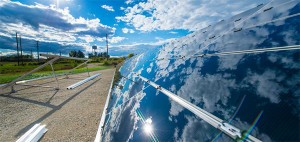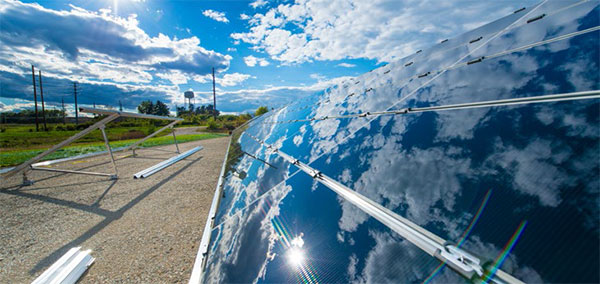 The IEA says renewables are set to become the leading source of new energy supply from now to 2040, will overtake coal as the largest source of electricity generation by the 2030s.
The IEA says renewables are set to become the leading source of new energy supply from now to 2040, will overtake coal as the largest source of electricity generation by the 2030s.
The International Energy Agency’s (IEA) latest report found that “in advance of the critical COP21 climate summit in Paris, there’s a clear sign that an energy transition is underway.” The World Energy Outlook 2015 report, published today, found that “renewables contributed almost half of the world’s new power generation capacity in 2014 and have already become the second-largest source of electricity (after coal).” More than 150 countries have submitted climate pledges ahead of the Paris climate talks, and they are “rich in commitments on renewables and energy efficiency,” says the IEA. The report also found renewables are set to become “the leading source of new energy supply from now to 2040.” And renewables will overtake coal as the largest source of electricity generation by the 2030s.
Coal demand is set to triple in India and Southeast Asia by 2040, reports the Guardian. At the same time, India is one of many countries aiming to become a so-called “solar superpower,” making a huge commitment to renewables at its first big renewables trade convention earlier this year. And India lays claim to the world’s first airport powered entirely by solar energy. “Renewables-based generation reaches 50 percent in the EU [European Union] by 2040, around 30 percent in China and Japan, and above 25 percent in the United States and India,” according to IEA estimates. The rapid growth in renewable energy will help emissions to slow “dramatically,” says the IEA, but the current emissions trajectory shows we are still heading for 2.7 degrees Celsius warming by 2100.
The IEA warns that a “major course correction” is still required to keep warming below the two degrees Celsius target. A recent UK Met Office report found that global warming is on track to exceed one degree Celsius above pre-industrial levels by the end of the year. But several groups are outlining how we can rapidly transition to a low-carbon future by expediting the deployment of renewable energy worldwide. Just yesterday, NextGen Climate America released a new report showing that the transition to a clean energy economy will drive economic growth for decades, generate well-paying jobs and increase household incomes. And in September, Greenpeace outlined a path for the world to transition to 100 percent renewable energy by 2050.

